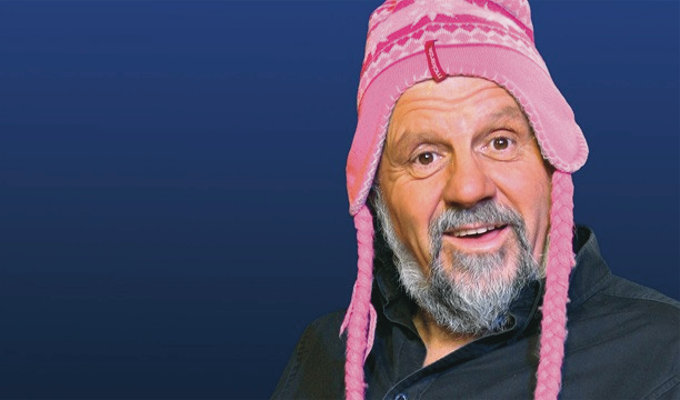Cornish comedian Jethro isn’t exactly the height of cool, largely dismissed these days as a passé old-school throwback with little more than a bumpkin’s accent and an arsenal of other people’s jokes to his name.
Those criticisms – especially the last one – have a lot of currency. Yet, despite it all, there is something very likeable about him. His gags may often be unpleasant, thanks to his insatiable below-the-belt obsession, but as the bemused simpleton always appearing on the back foot, he sells the bar-room tales with such effortless hangdog charm that it melts a lot – but not all – of the objections.
His audience here at the end-of-the-pier Worthing Pavilion reflect his own age – 63, if you’re wondering. But they like a bit of blue, and not just in their rinses, and Jethro certainly delivers. His routine is set almost exclusively in the NHS, with people rocking up to GPs’ surgeries or winding up in hospital with all manner of implausible genital ailments.
If you put your mind to it, you can usually predict the punchlines before he gets there – a task made easier if you’ve seen the gags on any number of round-robin emails or sick joke websites – but people love these clearly identifiable jokes. And, at the risk of losing a lot of credibility points, I’d venture that Jethro – who real name, brilliantly, is Geoff Rowe – is a very good comic, in technique at least. He delivers with great rhythm, timing and charm that, to some extent at least, means the offensive is defanged, and made silly. Likewise he can insult the audience in the most over-the-top way and they love him for it, because of the self-deprecating undercurrent to all that he does. And when he wants a real simpleton, he evokes the even more simple character of Denzil, his fictional sidekick in the fine ‘dumb and dumber’ double-act tradition.
A couple of times the liberal observer might flinch at Jethro’s anachronistic mindset. His mention of the gays in nearby Brighton really bristles, revolving as it does around the assumption that toilets might genuinely display ‘beware of the homosexual’ signs. But a lot of the dated references are just lazy, rather than genuinely offensive. Germans are Nazis, the Irish are terrorists, that sort of thing. Bless him, he tries to be topical with a joke about Gordon Brown (he does know he’s not Prime Minister any more, right?) but as it’s based on an assumption of sub-literate intelligence, it’s clearly a George Bush joke given a spray job. Yet out of context, it doesn’t work: you can say a lot about Brown, but that he’s a thicko doesn’t stack up.
So, back to the dick and fanny jokes with which Jethro is clearly more comfortable. But eventually the gynaecological obsession gets too much, and as he goes cruder the charm isn’t enough to hold it together. The tale of the woman stuck to the bathroom tiles by her ‘fanny’ did it for me, although much of his audience loved it, no matter how relentless the unpleasantness.
In what is a bizarre juxtaposition to modern ears, these sick jokes are alleviated by the odd tender ballad. Jethro’s support act, who makes a couple of reappearances after the opening warm-up, is a able club singer – the sort of meldodramatic X-Factor act who’ll jerk his microphone away in moments of high emotion, or pull it back and forth like a trombone. But if you think that’s cheesy, wait until Jethro, for no reason, launches into an earnest rendition of the Scottish folk song Maggie.
Later, he delivers a load of one-liners as he absently, hypnotically, strums away at a guitar, a enchanting trick sometimes used by contemporary comics, most of whom might be surprised to learn the technique is not the preserve of the quirky indie circuit.
There’s too much not to like about Jethro’s material to recommend him, but he’s got a lot of redeeming features that many of his generation lack, largely thanks to his winningly sympathetic attitude.

